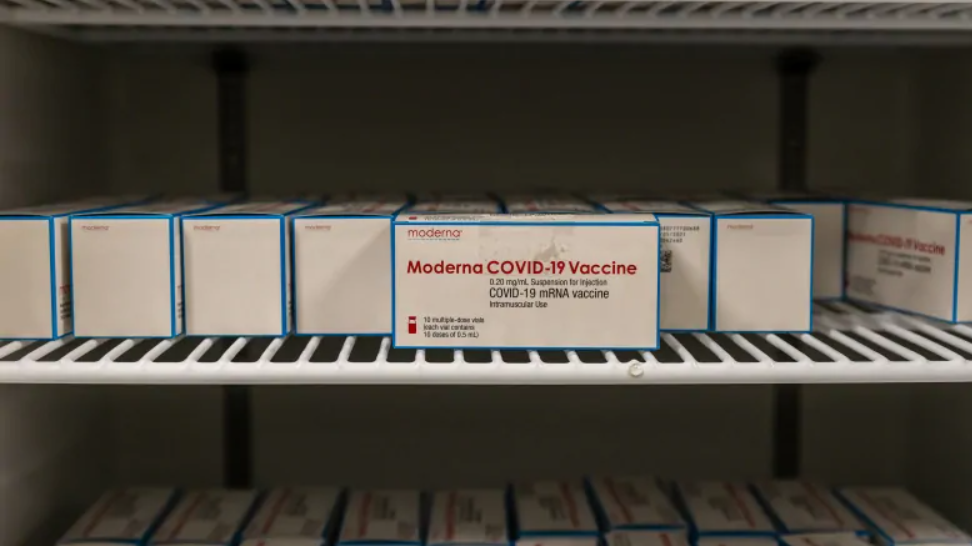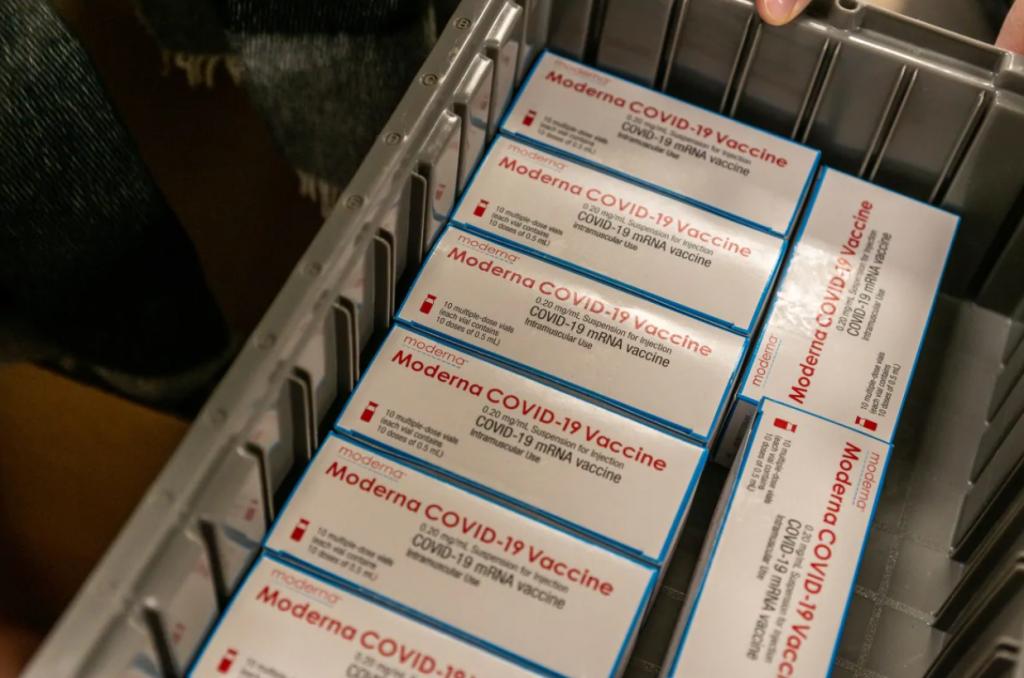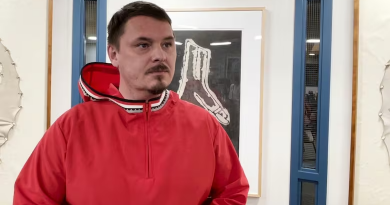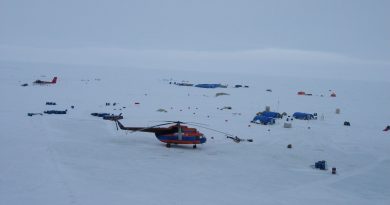First doses of Moderna COVID-19 vaccine arrive in Arctic Canada

The first shipments of COVID-19 vaccines have arrived in Canada’s territories.
N.W.T. Health Minister Julie Green tweeted on Monday evening that 7,200 doses of the Moderna vaccine had arrived in the territorial capital Yellowknife earlier in the day. They’re being kept at Stanton Territorial Hospital.
I am pleased to share that our first shipment of the #Moderna vaccine arrived safely in #Yellowknife today. 7,200 doses are located at Stanton Territorial Hospital to ensure vaccine stability and quality assurance. [1/2] #nwtpoli #cdnpoli pic.twitter.com/8XY5Ih965p
— Julie Green (@juliegreenMLA) December 29, 2020
A statement by Yukon Health Minister Pauline Frost issued Monday evening also confirmed that Yukon had received a shipment of 7,200 doses.
“This is a turning point in Yukon’s fight against COVID-19 and is a positive way to end 2020,” Frost said in the statement, adding that vaccinations will start next week with long-term care residents and staff.
The shipments are a portion of Moderna’s first vaccine shipment to Canada, which arrived on Dec. 24.
The Northwest Territories and Yukon, along with Nunavut, were waiting for the Moderna vaccine to begin their vaccination programs because they lack the health infrastructure necessary to safely store the Pfizer-BioNTech vaccine, which must be kept at -70 C to remain stable.
Yukon’s vaccine strategy identifies people working and living in long-term care homes, group homes, and shelters; health-care workers; senior citizens; and people living in rural and remote communities as priority groups for the vaccine.
Frost, who was at the airport when the vaccines arrived, told CBC News that there will be enough supply in the North to vaccinate a majority of the eligible adult population and that “we can now look forward to the future when we can start interacting with one another again.”
The N.W.T. has not released a detailed vaccination strategy, though they have indicated that one will be coming in early January, with vaccinations to residents beginning in the second week of 2021.

Earlier this month, N.W.T. Chief Public Health Officer Dr. Kami Kandola said that the territory’s strategy will prioritize those at risk of severe disease and those at high risk of bringing COVID-19 back into the territory. The strategy will involve consulting with Indigenous and community governments on how to prioritize doses.
The Northwest Territories has been one of the least hard-hit populations in Canada by the COVID-19 pandemic, with 24 total confirmed cases. All but one have recovered.
Yukon has had 60 total confirmed cases of COVID-19, with one death. None of those cases are currently active.
The territories have been identified as a priority for vaccinations due to their remoteness and lack of health infrastructure. All three territories have stated that they expect to receive enough doses of the Moderna vaccine to vaccinate 75 per cent of their adult population by March 2021.
Related stories around the North:
Canada: Canada approves Moderna COVID-19 vaccine, Eye on the Arctic
Denmark: Faroe Islands institutes new COVID-19 recommendations until the end of 2020, Eye on the Arctic
Iceland: Iceland to review COVID-19 border measures by January 15, Eye on the Arctic
Russia: Russia’s Northern Fleet begins 2nd stage of COVID-19 vaccination, Radio Canada International
Sweden: Sweden’s northernmost county among regions to introduce stricter COVID-19 recommendations, Radio Sweden
United States: After early containment success, there’s now rapid COVID-19 spread in rural Alaska, including the Arctic, Alaska Public Media



